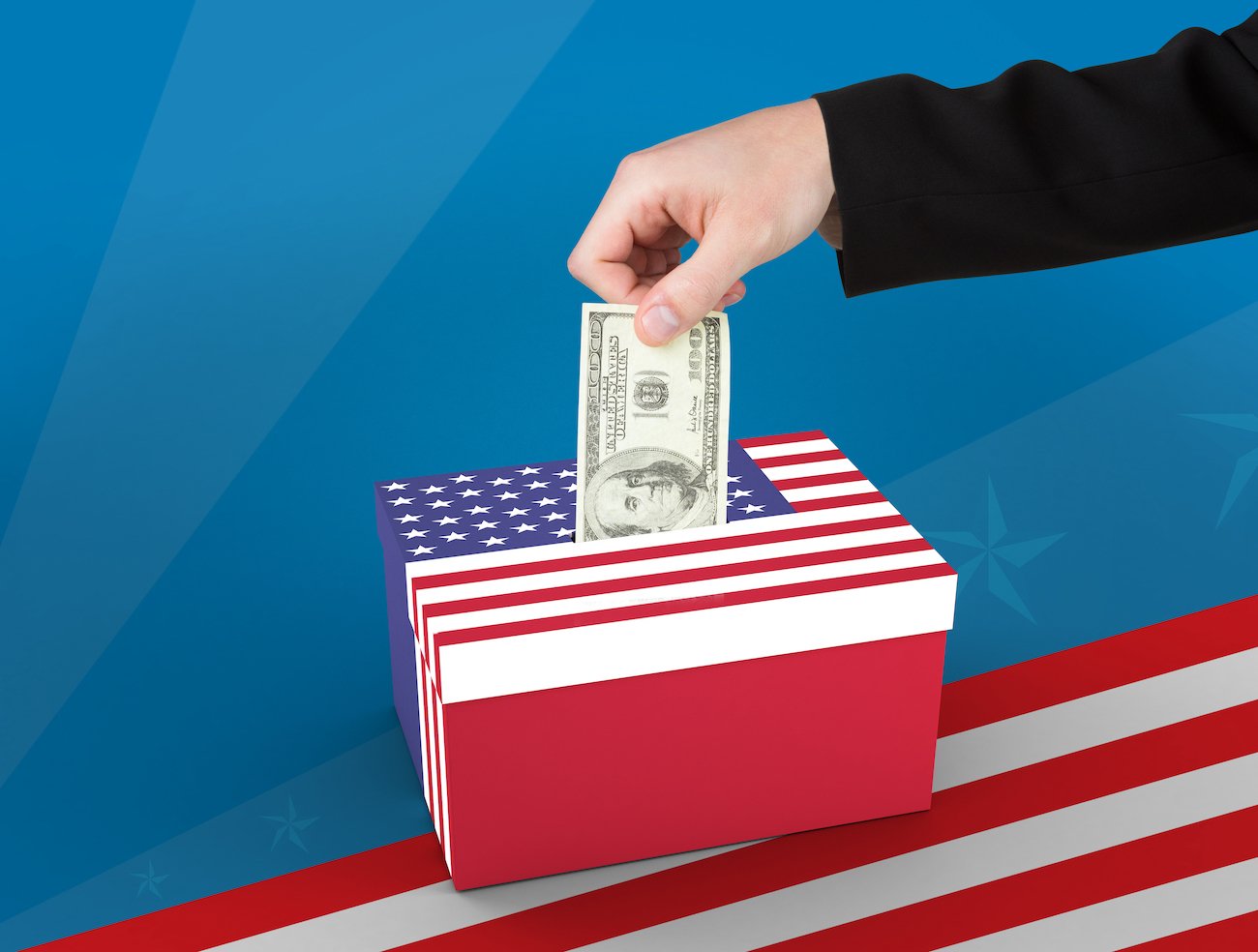Campaign Finance Reform: Limiting Big Money in Politics
More than 70% of U.S. adults, Democrats and Republicans alike, say that there should be limits on the amount of money individuals and organizations can spend on political campaigns. Even more, 85%, believe that the cost of political campaigns makes it hard for good people to run for office.
That’s according to a survey Pew Research fielded a year before the exhausting mega-billion extravaganza of the 2024 elections.
Big money always has had outsize influence on U.S. politics, but the Supreme Court’s 2010 Citizen’s United decision reversing a century of campaign finance law has planted a huge “for sale” sign on our elections. Since then billionaires, corporations, even foreign countries have been bidding up the price—$6.5 billion in 2016, $16 billion in 2024. And that’s just what’s reported. With paper-thin reporting requirements we can only guess how much more dark money was raised and spent.
The Solution: A Bipartisan Movement for Campaign Finance Reform
According to public opinion surveys, most Americans know this is happening, and hate it. So what will the public’s response be to this assault on democracy? We can’t change it, so get over it?
Not so fast. Help is on the way.
Of all the major issues out there, this is one of the few that unites Americans of every shade of blue and red. That unity has coalesced into a robust movement trying to fix the problem, a movement I mentioned in this space a few weeks ago. Given the results of the election, there’s even more urgency now.
The bipartisan organization calls itself American Promise. Its proposed reform is a constitutional amendment that returns to Congress and the states the right to regulate campaign contributions and spending. The goal is to enlist 290 members of the U.S. House and 67 members of the U.S. Senate to pass the amendment and send it to the states for ratification. If 37 states agree, the amendment becomes the law of the land, the Citizen’s United decision is voided, and Congress and the states can take back control of election financing.
Before you say, “not a chance,” take a look at these numbers.
More than 200 members of the House and 50 senators in the current Congress already have pledged to vote for it.
Twenty-two state legislatures already have formally backed it.
More than $20 million has been raised recently to staff accelerated local efforts to win support in state legislatures throughout the country.
The Path Forward: Building Momentum for Change
Why would state legislators vote to limit campaign money? Primarily because their voters want to end unlimited spending. Opposition to such a popular reform would be politically dangerous.
Here’s another reason: I know from my own experience that most candidates hate the current system. Imagine running for office devoting huge portions of each day begging people for money, knowing that big money comes with big debts that almost certainly will need to be repaid with questionable votes.
Even so, you might say, a campaign to enact a constitutional amendment is a monumental effort, seldom successful. True. Hard, but not impossible. As recently as 1992 the Constitution was amended to limit the way members of Congress can raise their own pay. Twenty years before that the 26th amendment lowered the voting age to 18.
What the two most recent amendments had in common was universal support among most Americans. They were truly bi-partisan efforts. And judging by American Promise’s success so far, so is the campaign to take back our elections from the deep pockets who would buy them.
Get Involved: Join the Fight for Democracy
Want to do more than wring your hands over the dangerous state of our campaign finance system? Here’s your cause.
Want to know more about American Promise? Visit America’s Promise here.
Comments? Criticism? Contact Joe Rothstein at jrothstein@rothstein.net



What happens when a fun-loving, charismatic, reform-minded Mexican-American billionairess becomes president of the United States and strikes fear in the pocketbooks of a cabal of the rich and powerful?